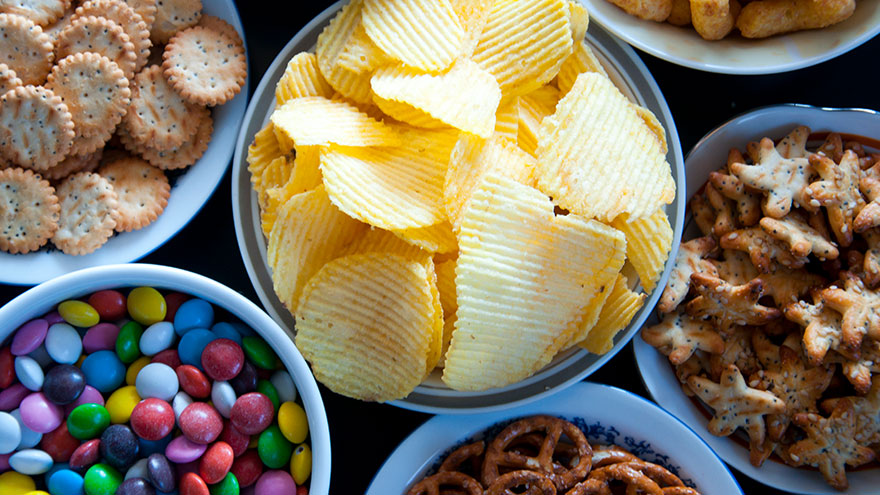Buscar
Results for ''s'
Clear-
Jakob’s Journey at Renown Children’s Hospital
In August 2016, six-year-old Jakob was admitted to Renown Children's Hospital with what seemed like a common ear infection. Jakob's condition quickly progressed, and he started experiencing neurological symptoms such as difficulty speaking and a full-body shutdown. Doctors, neurologists and specialists from Renown worked with doctors from Stanford, where he was ultimately diagnosed with Bickerstaff brainstem encephalitis (BBE). BBE is a rare, autoimmune response that attacks the nerves in the body due to an acute illness such as a cold, flu or, in Jakob's case, an ear infection. Jakob could not breathe or eat and experienced paralysis on the side of his face, throat, stomach, bowels, lungs and legs. In addition, he started to rapidly lose weight as well as body function. Jakob lost half his body weight which resulted in the need for a Gastrostomy tube. This device is placed surgically and gives direct access to the stomach to give the child the nutrition needed. He also needed occupational therapy, and after three and a half months of ICU respiratory therapy, surgeries and treatments, he was released home to regain his strength. Forever Grateful Anica, Jakob's mom, said, "If it were not for the quick response and unconditional support and compassion from the team at Renown, Jakob would not be here today." Jakob's family is forever grateful to the staff, community and expertise at Renown for their unwavering commitment to their son and family during their most trying time in life. "When I met Jakob on the first day of his illness, so much was unknown. My team and I were worried, as his symptoms were very unusual. His rapid deterioration, after being a perfectly healthy child, was clearly terrifying for his parents. Handing over a child's care to a team of strangers is one of the scariest things that can happen to parents,” said Dr. Kris Deeter, Physician in Chief at Renown Children’s Hospital. “However, Anica and Jeremiah were also very clear that they did not want Jakob transferred somewhere else. So, we used all our resources to care for him, arrive at a diagnosis, and start aggressive therapies. They listened to every word we said, educated themselves, and became partners in Jakob's care. We all became part of Team Jakob, and soon, he proved to us just how strong he was." Today, Jakob is 13 years old and thriving in every aspect of his life. He is currently on the honor roll in school and finds joy in his newfound passion for the violin. He loves spending his free time learning about mixing music, making new friends and traveling to different parts of the country. This summer, he will travel to Europe to explore his passion for culture. The family says, "We owe it all to the family and staff at Renown."
Read More About Jakob’s Journey at Renown Children’s Hospital
-
The Not-So-Fab-Five: Foods That Increase Stroke and Heart Disease Risk
Did you know that 80 percent of all strokes are preventable? Learn which foods should be eaten in moderation to reduce your family's risk of stroke. Stroke is the fifth leading cause of death in the nation and a major cause for disability, killing 130,000 people each year. But did you know that 80 percent of all strokes are preventable, according to the American Stroke Association? Several stroke risk factors -- high blood pressure, smoking, diabetes, physical activity level, obesity, high cholesterol and heart and artery disease -- can be controlled, treated and improved, right down to the foods we choose to consume each day. Diets high in sodium can increase blood pressure, putting you at greater risk for stroke. A high-calorie diet can lead to obesity -- another risk factor. And foods high in saturated fats, trans fat and cholesterol will raise your blood cholesterol levels causing blood clots, which -- you guessed it -- can lead to a stroke. The “not-so-fab” five foods listed below play a large role in damaging your body and causing vascular disease, stroke and heart disease and should be avoided on a regular basis. However: Moderation is the key to life, in my opinion. Sure, everyone is going to have a soda here and there or a steak off the grill, but keep it off the main menu. 1. Packaged and Fried Food Have you noticed foods like hot dog buns and bottled salad dressings rarely go bad? Ever asked yourself why? This is due to the use of hydrogenated oils, which are trans fats. Hydrogenated oils stay solid at room temperature and do not require refrigeration. Convenient? Yes. Healthy? No. Unfortunately, many frozen foods and meals also fall into this category, except for frozen fruits and veggies. So here’s the lowdown on trans fats: They’re considered by many experts as the worst type of fat you can consume, raising your LDL (“bad”) cholesterol and lowering your HDL (“good”) cholesterol. While some meat and dairy products contain small amounts of naturally occurring trans fat, most dietary sources are formed through an industrial process adding hydrogen to vegetable oil, causing the oil to solidify at room temperature. The FDA is in the process of restricting or possibly banning trans-fats from food in the U.S. A study published in JAMA Cardiology compared data from counties with and without trans-fat restrictions and the findings were substantial: There was a 6 percent decline in hospitalizations for heart attack and stroke in counties with trans-fat restrictions. Bottom line: Ideally no processed food should pass your lips, but realistically, aim for less than 2 grams of trans fat per day. Skip the store-bought treats at the office and fries at lunch. Also avoid crackers, regardless of what you are dipping them in. Choose to eat fruits to satisfy your sweet cravings and veggies and hummus to satisfy the savory. 2. Lunch meat Processed meats, including bacon, smoked meats and hot dogs, are all on the DNE (Do Not Eat) list, unless you want to play with fire. Processed meats are a no-go if you want to keep your arteries clear of plaque buildup. So what is the alternative to your salami sandwich? Try a healthy alternative like a tuna sandwich with avocado (a great alternative to mayo) or a veggie sandwich. 3. Diet soft drinks First of all, when a drink is sweeter than a candy bar but it contains zero sugar and zero calories, buyer beware. Many consumers think because a soda is labeled “diet” it’s a better choice, but studies have linked diet soft drink consumption with an increased risk of stroke and vascular disease. In a nine-year study of more than 2,500 people, those who drank diet soda daily were 48 percent more likely to have a heart attack or stroke or die from those events, compared with those who rarely or never drank soda. What else are you supposed to drink? If you must drink soda, break the everyday habit and drink it on special occasions; otherwise water rules. And if you don’t like water, try flavoring your water with fruit slices. 4. Good-old red meat So is there ANY good meat out there you ask? The answer is yes, but it’s not red. In the journal Stroke, an article showed women who consumed large servings of red meat regularly had a 42 percent higher incidence of stroke. Red meat is high in saturated fat, which clogs arteries with plaque. The alternative to red meat is a heart-healthy protein like poultry or fish, or even non-animal products like beans, nuts and tofu. 5. Canned foods Steer clear of factory processed soups, beans and sauces. Canned items all have incredible amounts of sodium or MSG or baking soda/powder to maintain their freshness and shelf life. One study showed if you consume more than 4,000 mg of salt per day, you more than double the risk of stroke compared to diets with less than 2,000 mg. Another tip: When possible, plan and make meals from scratch. Making the wrong meal or snack choices is one of the biggest contributing risk factors for stroke and heart disease. Most people know what good food choices are, but they don’t realize the serious impact the bad choices have on overall health. Learn what is most beneficial to your body to consume. It will be a life changer – literally.
Read More About The Not-So-Fab-Five: Foods That Increase Stroke and Heart Disease Risk

